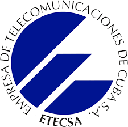Executive Secretary

21st International Symposium on Electrical Engineering
SIE 2025
Abstract
This paper analyzes a proposal aimed at strengthening the teaching of educational robotics in Villa Clara, Cuba, as a pedagogical and didactic tool for the comprehensive development of children and young people. The initiative is based on the need to incorporate new technologies into the educational field, in line with the 2030 Agenda for Sustainable Development and the digital transformation demanded by today's society. The main problem lies in the insufficient integration of robotics into the educational process due to limited infrastructure, a scarcity of technological resources, and deficiencies in the training of teachers and instructors. Given this scenario, the proposal establishes clear objectives: to encourage theoretical and practical learning in robotics, empower participants through mastery of programming and electronic tools, and promote the inclusion of girls in ICTs. The methodology applied includes the design and implementation of workshops, training courses, conferences, interest and skill groups, which facilitate the adoption of new pedagogical strategies and the use of free software and hardware. Among the expected outcomes are the development of accurate diagnoses of the current state of educational robotics, the development of innovative projects, and the collection of documentary and audiovisual evidence of the activities carried out. In conclusion, the project is presented as a transformative and replicable strategy that reduces the digital divide, strengthens computational thinking, and promotes gender equity in education, contributing to the construction of an inclusive and sustainable knowledge society.
Resumen
El presente trabajo analiza una propuesta destinada a fortalecer la enseñanza de la robótica educativa en Villa Clara, Cuba, como herramienta pedagógico-didáctica para el desarrollo integral de niños, niñas y jóvenes. La iniciativa se fundamenta en la necesidad de incorporar nuevas tecnologías en el ámbito educativo, en consonancia con la Agenda 2030 para el Desarrollo Sostenible y la transformación digital que exige la sociedad actual. La problemática principal radica en la insuficiente integración de la robótica en el proceso educativo, debido a la limitada infraestructura, la escasez de recursos tecnológicos y las deficiencias en la capacitación de docentes e instructores. Ante este escenario, la propuesta establece objetivos claros: incentivar el aprendizaje teórico-práctico en robótica, empoderar a los participantes mediante el dominio de herramientas de programación y electrónica, y fomentar la inclusión de las niñas en las TIC. La metodología aplicada comprende el diseño e implementación de talleres, cursos de capacitación, conferencias, círculos de interés y competencias, que facilitan la adopción de nuevas estrategias pedagógicas y el uso de software y hardware libre. Entre los resultados esperados se encuentran el desarrollo de diagnósticos precisos sobre el estado actual de la robótica educativa, la elaboración de proyectos innovadores y la recopilación de evidencia documental y audiovisual de las actividades realizadas. En conclusión, el proyecto se presenta como una estrategia transformadora y replicable que reduce la brecha digital, fortalece el pensamiento computacional y promueve la equidad de género en el ámbito educativo, contribuyendo a la construcción de una sociedad del conocimiento inclusiva y sostenible.
About The Speaker

Lic. Jorge Luis Nuñez La O

Discussion


 Bronze
Bronze